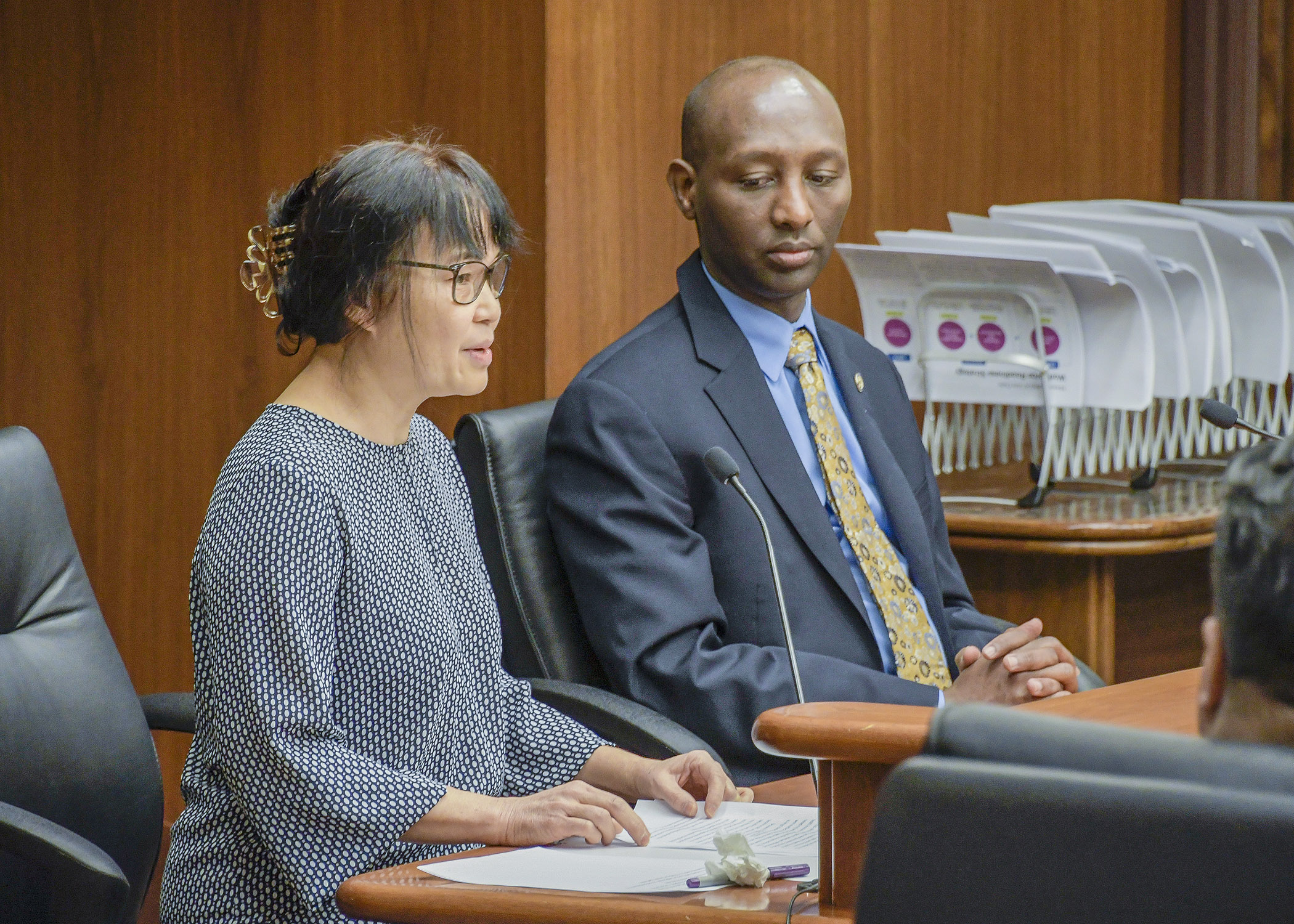Health care, hospitality jobs provide starting point for new Americans

The International Institute of Minnesota was established a century ago, to help refugees in the wake of World War I, and it has continued to support new Americans as they find jobs and build lives in Minnesota.
Sponsored by Rep. Mohamud Noor (DFL-Mpls), HF3600 would appropriate $100,000 in Fiscal Year 2021 as a onetime grant to support the institute’s workforce training programs.
“Ninety-seven percent of new workers in our state in 2016 and in 2017 were new Americans,” said executive director Jane Graupman. “Immigrants are critical to the future and economic growth of our state. Our services make certain that the talent and ambitions of immigrants … are not wasted.”
The House Jobs and Economic Development Finance Division laid the bill over Thursday for possible inclusion in a supplemental budget bill.
A companion, SF3421, is sponsored by Sen. Rich Draheim (R-Madison Lake) and awaits action by the Senate Jobs and Economic Growth Finance and Policy Committee.
The institute provides a wide range of programs, including citizenship and English-language learner classes, services for the victims of labor and sex trafficking, and workforce development programs.
The largest of these is focused on the health care industry, while the newest helps connect people with housekeeping jobs in the hospitality industry. Both have high placement and retention rates, Graupman said.
In both cases, the goal is not only to help new Americans find employment, but to help them advance in those fields, securing higher positions and higher wages to support their families.
Ku She Saw came to the United States as a refugee from Burma in 1999. After connecting with the institute in 2002, she started English classes, completed CNA training, and found a job in health care.
But the institute’s support continued, helping her achieve her LPN, reuniting her family after they were separated in the resettlement process, and supporting her as she achieved citizenship in 2006. The institute even helped Saw and her husband navigate the process of buying a home and getting insurance, she said.
She is now applying for an RN program, and excited to continue in advancing in her career.
“I have made it this far. I have become an LPN, and now I can continue to help other people,” Saw said. “I can be an example and teach others in my community.”
The funding would allow for additional job placements in both pathways, Graupman said.
The institute’s hospitality program has the added advantage of letting people begin working, usually full-time, even with limited English language skills.
“It’s an on-ramp to the labor force,” and most participants are unemployed before working with the program, Graupman said.
Rep. Dave Baker (R-Willmar), who is in the hotel business, expressed support and urged Graupman to expand the program into Greater Minnesota, saying it could encourage employers to hire more immigrants by making the language barriers less daunting.
Baker said he hired two Somali women last year who have been excellent employees. While he initially had to hire a translator to help with the training process, their language skills advanced rapidly.
“Literally within three to four months you can have really good conversations,” Baker said. “They’re listening. They’re getting it. It’s just getting them out into the community … this is something that we just need to embrace more.”
A similar bill was funded in the House omnibus jobs and economic development, energy and climate bill last year, but did not make it into the final law.
Related Articles
Search Session Daily
Advanced Search OptionsPriority Dailies
Legislative leaders set 2026 committee deadlines
By Lisa Kaczke Legislative leaders on Tuesday officially set the timeline for getting bills through the committee process during the upcoming 2026 session.
Here are the three deadlines for...
Legislative leaders on Tuesday officially set the timeline for getting bills through the committee process during the upcoming 2026 session.
Here are the three deadlines for...
Latest budget forecast projects nearly $2.5 billion surplus, but red ink down the road
By Mike Cook Three weeks before Christmas, state budget officials provided some merriment to Minnesotans. However, Grinch-like transformations lurk.
Released Thursday, the November ...
Three weeks before Christmas, state budget officials provided some merriment to Minnesotans. However, Grinch-like transformations lurk.
Released Thursday, the November ...